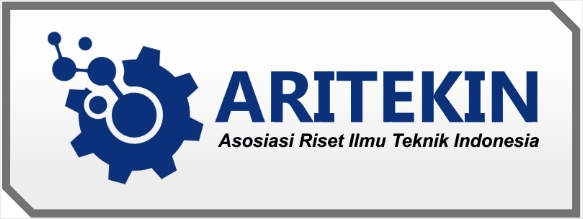Implementation of Metallurgical Industry Management Using the DMAIC Method in TS Aluminum
Abstract
The case study in this research comes from the TS Aluminum company in Yogyakarta. This research aims to reduce the number of defects in metal in the casting process from an industrial management point of view. This research method uses quantitative and qualitative methods through literature studies and experimental data with the DMAIC method.
From the results of production and marketing carried out with a production volume of 250 pcs per day, there were 4% failures in the products produced. Defects that often occur are rat tail defects, cold shot, and porosity. Defects are caused by factors such as human error, methodology, and materials. Recommendations for improvement include providing regular training to employees, updating work procedures, and checking materials.Keywords
Full Text:
PDFReferences
da Silva, H. G., Ferreira, J. C. E., Kelm, T., & Ivaniski, T. M. (2023). Life cycle assessment of the casting process with the addition of niobium from scrap. SN Applied Sciences, 5(12). https://doi.org/10.1007/S42452-023-05569-4
Dhingra, S., Guleria, P., Khargotra, R., & Shukla, R. K. (2022). Improvement in Dents at Gear Manufacturer Company Through Lean Six Sigma. Proceedings - 2022 International Conference on Computational Modelling, Simulation and Optimization, ICCMSO 2022, 412–415. https://doi.org/10.1109/ICCMSO58359.2022.00085
Fan, K. C., Chen, S. H., Chen, J. Y., & Liao, W. B. (2010). Development of auto defect classification system on porosity powder metallurgy products. NDT & E International, 43(6), 451–460. https://doi.org/10.1016/J.NDTEINT.2010.04.005
Glazoff, M. V., Barlat, F., & Weiland, H. (2004). Continuum physics of phase and defect microstructures: bridging the gap between physical metallurgy and plasticity of aluminum alloys. International Journal of Plasticity, 20(3), 363–402. https://doi.org/10.1016/S0749-6419(03)00093-7
Guleria, P., Pathania, A., Bhatti, H., Rojhe, K., & Mahto, D. (2021). Leveraging Lean Six Sigma: Reducing defects and rejections in filter manufacturing industry. Materials Today: Proceedings, 46, 8532–8539. https://doi.org/10.1016/J.MATPR.2021.03.535
Guleria, P., Pathania, A., Sharma, S., & Sá, J. C. (2021). Lean six-sigma implementation in an automobile axle manufacturing industry: A case study. Materials Today: Proceedings, 50, 1739–1746. https://doi.org/10.1016/j.matpr.2021.09.177
Guleria, P., Pathania, A., Shukla, R. K., & Sharma, S. (2021). Lean six-sigma: Panacea to reduce rejection in gear manufacturing industry. Materials Today: Proceedings, 46, 4040–4046. https://doi.org/10.1016/J.MATPR.2021.02.559
Jones, E. C., Parast, M. M., & Adams, S. G. (2010). A framework for effective Six Sigma implementation. Total Quality Management and Business Excellence, 21(4), 415–424. https://doi.org/10.1080/14783361003606720
Kolbusz, P., & Antosz, K. (2023). Assessment of the Effectiveness of Six Sigma Methodology Implementation - A Literature Review. Lecture Notes in Networks and Systems, 790 LNNS, 200–214. https://doi.org/10.1007/978-3-031-45021-1_15
Ly Duc, M., Hlavaty, L., Bilik, P., & Martinek, R. (2023). Enhancing manufacturing excellence with Lean Six Sigma and zero defects based on Industry 4.0. Advances in Production Engineering And Management, 18(1), 32–48. https://doi.org/10.14743/APEM2023.1.455
Nallusamy, S. (2020). Execution of lean and industrial techniques for productivity enhancement in a manufacturing industry. Materials Today: Proceedings, 37(Part 2), 568–575. https://doi.org/10.1016/j.matpr.2020.05.590
Ranade, P. B., Reddy, G., Koppal, P., Paithankar, A., & Shevale, S. (2021). Implementation of DMAIC methodology in green sand-casting process. Materials Today: Proceedings, 42, 500–507. https://doi.org/10.1016/J.MATPR.2020.10.475
Sahoo, A. K., Tiwari, M. K., & Mileham, A. R. (2008). Six Sigma based approach to optimize radial forging operation variables. Journal of Materials Processing Technology, 202(1–3), 125–136. https://doi.org/10.1016/J.JMATPROTEC.2007.08.085
Shukla, V., Swarnakar, V., & Singh, A. R. (2021). Prioritization of Lean Six Sigma project selection criteria using Best Worst Method. Materials Today: Proceedings, 47, 5749–5754. https://doi.org/10.1016/j.matpr.2021.04.038
Sithole, C., Nyembwe, K., & Olubambi, P. (2019). Process knowledge for improving quality in sand casting foundries: A literature review. Procedia Manufacturing, 35, 356–360. https://doi.org/10.1016/J.PROMFG.2019.05.052
Six Sigma within Doosan Heavy Industries & Construction Company. (2006). 143–156. https://doi.org/10.1016/B978-0-7506-6459-2.50012-3
Zhang, J., Yuan, W., Song, B., Yin, S., Wang, X., Wei, Q., & Shi, Y. (2022). Towards understanding metallurgical defect formation of selective laser melted wrought aluminum alloys. Advanced Powder Materials, 1(4), 100035. https://doi.org/10.1016/J.APMATE.2022.100035
Zope, A., Swami, R. K., & Patil, A. (2023). LEAN SIX SIGMA BARRIERS WITH POTENTIAL SOLUTIONS IN ELECTRICAL VEHICLE ASSEMBLY: A REVIEW. Proceedings on Engineering Sciences, 5(3), 375–382. https://doi.org/10.24874/PES05.03.002
DOI: https://doi.org/10.31315/jmept.v4i2.11432
Refbacks
- There are currently no refbacks.
Copyright (c) 2024 Nixon Carlotta
Journal of Metallurgical Engineering and Processing Technology indexed by:

Journal of Metallurgical Engineering and Processing Technology (JMEPT)
Department of Metallurgical Engineering, UPN "Veteran" Yogyakarta
Metallurgical Research and Development Centre (MRDC)-UPNVY
Gd. Urip Sumohardjo Lt. 2
Jl. Babarsari No. 2, Tambakbayan, Yogyakarta 55281
View My Stats










1.png)
1.png)